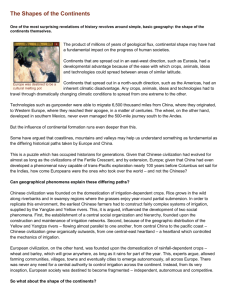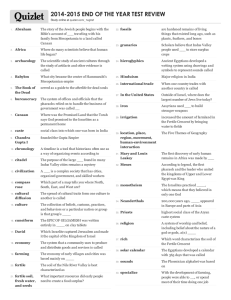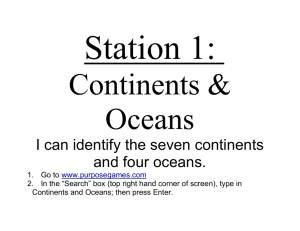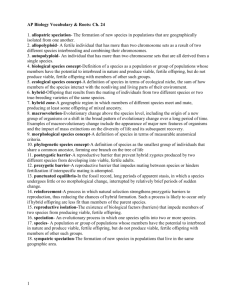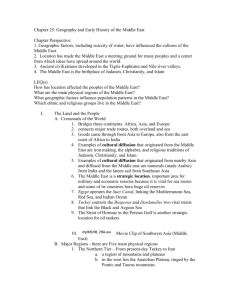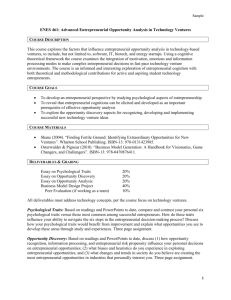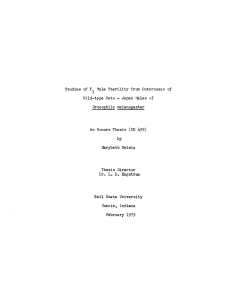Ch. 1 Completed
advertisement
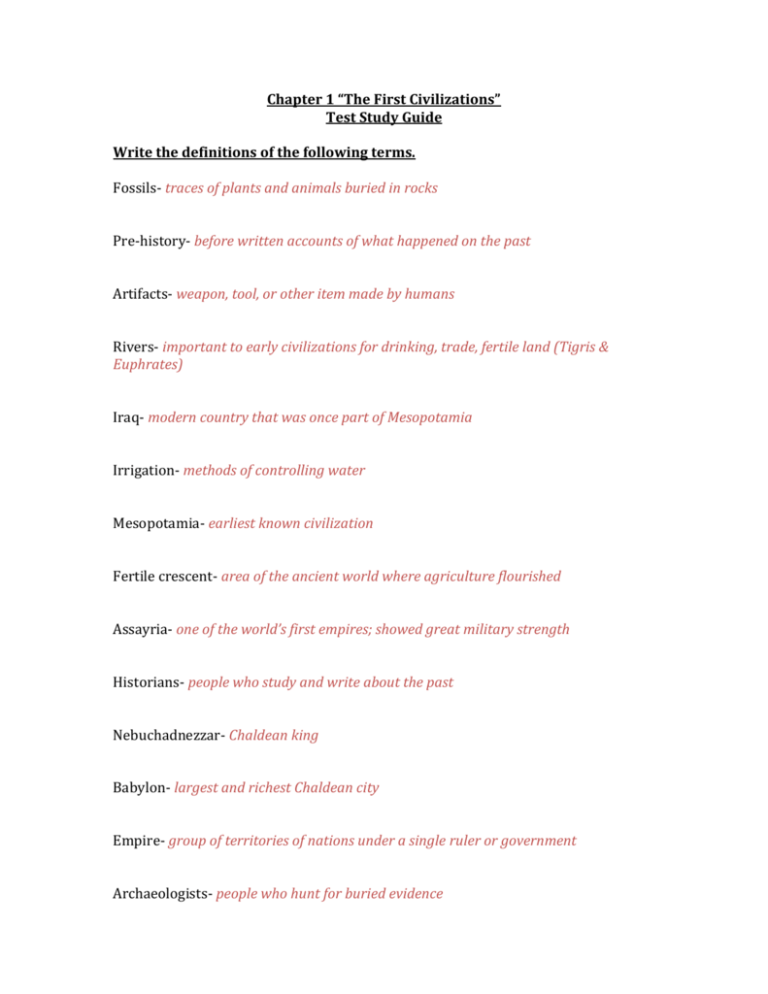
Chapter 1 “The First Civilizations” Test Study Guide Write the definitions of the following terms. Fossils- traces of plants and animals buried in rocks Pre-history- before written accounts of what happened on the past Artifacts- weapon, tool, or other item made by humans Rivers- important to early civilizations for drinking, trade, fertile land (Tigris & Euphrates) Iraq- modern country that was once part of Mesopotamia Irrigation- methods of controlling water Mesopotamia- earliest known civilization Fertile crescent- area of the ancient world where agriculture flourished Assayria- one of the world’s first empires; showed great military strength Historians- people who study and write about the past Nebuchadnezzar- Chaldean king Babylon- largest and richest Chaldean city Empire- group of territories of nations under a single ruler or government Archaeologists- people who hunt for buried evidence Nineveh- capital of Assyria Caravans- groups of traveling merchants Artisans-skilled craftspeople Civilization- complex society Characteristics of a civilization- cities, social classes, writing system, religion, art, government Specialization- development of different kinds of jobs Epic of Gilgamesh- world’s oldest known story Ziggurat- grand temple dedicated to a god Answer How did Paleolithic man adapt to his environment? - used animals for clothing - created new kinds of shelter - used fire for light, heat, cooking and smoking animal meat How did river valley locations help the first civilizations? - provided fertile land - provided water for irrigation - good framing conditions made it easy to feed a large number of people Describe the Assyrian army. - ferocious warriors - first to use iron weapons - innovative - strategic - set fire to the lands of the people they captured
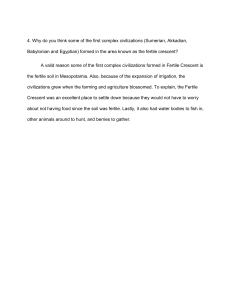
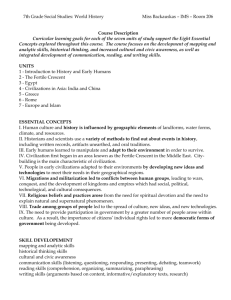
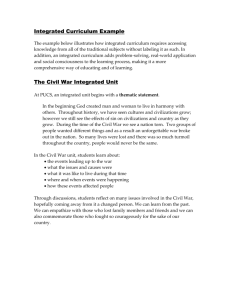
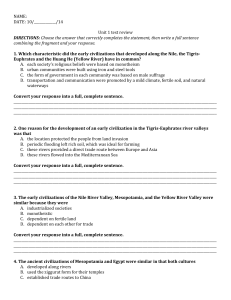
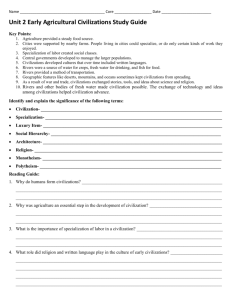
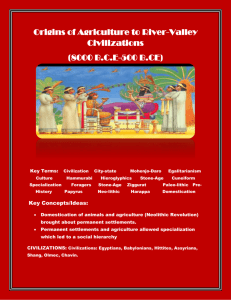
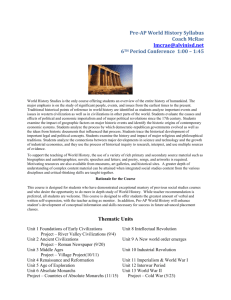
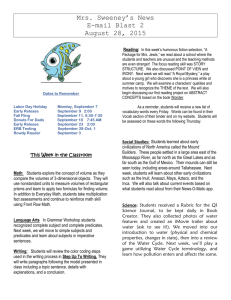
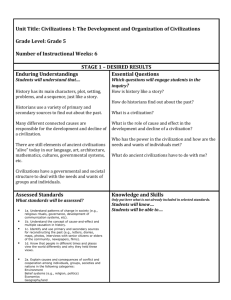
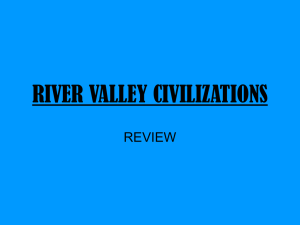
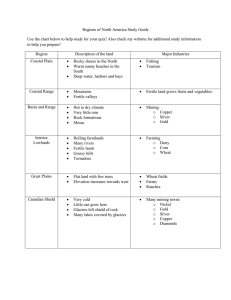
![Workshop 3 [DOC] - United Nations Alliance of Civilizations](http://s3.studylib.net/store/data/007040194_1-4d3a9e036004bc81acae865d3cf16d13-300x300.png)
